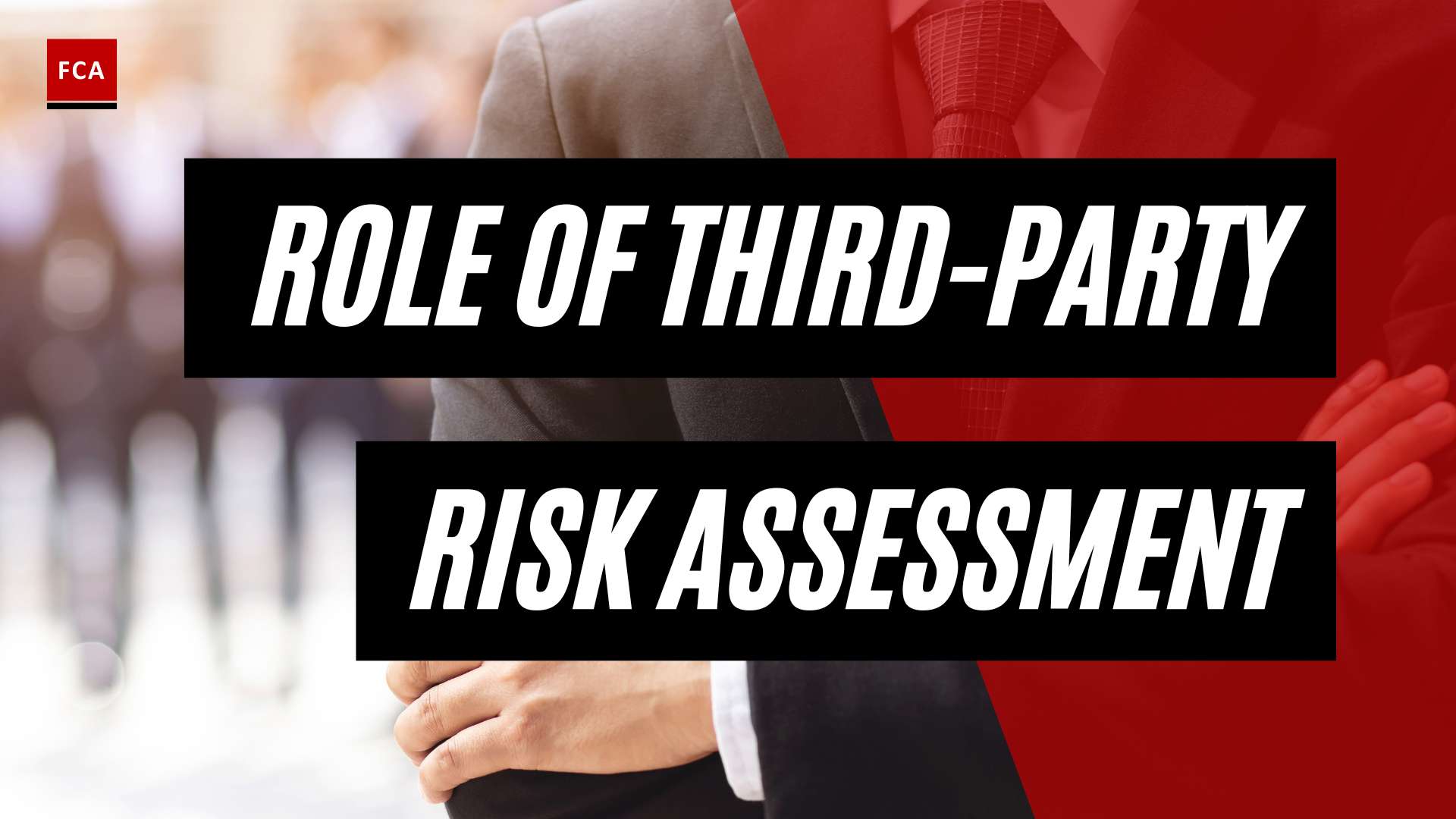Understanding AML in Legal and Professional Services
In the realm of legal and professional services, understanding and complying with Anti-Money Laundering (AML) regulations is of paramount importance. Law firms and legal professionals play a crucial role in preventing financial systems from being abused for illegal activities and ensuring the integrity of the legal profession (Sanction Scanner). Let’s delve into the importance of AML compliance and the consequences of non-compliance.
Importance of AML Compliance
Law firms and professionals are subject to money laundering regulations due to being potential targets for those seeking to launder money. Compliance with AML regulations is essential to safeguard the financial system and prevent illicit activities within the legal industry. By acting as intermediaries between clients and financial institutions, law firms can contribute to the overall fight against money laundering.
Complying with AML regulations helps law firms maintain the integrity of their services and protect themselves from becoming unwitting participants in money laundering schemes. By implementing robust AML policies and procedures, law firms can mitigate the risks associated with money laundering, protect their reputation, and demonstrate their commitment to ethical and legal practices.
To ensure AML compliance, law firms should establish effective internal controls, conduct regular staff training on AML procedures and obligations, and implement risk-based AML programs tailored to their specific practice areas. By doing so, law firms can strengthen their defenses against money laundering activities and contribute to a more transparent and accountable financial system (aml training for legal professionals).
Consequences of Non-Compliance
Failure to comply with AML regulations can have severe financial and reputational consequences for law firms. Regulatory bodies have the power to impose substantial fines, penalties, and sanctions on non-compliant firms. In some cases, non-compliance can even lead to the loss of operating licenses, impacting the firm’s ability to continue its legal practice.
Beyond financial repercussions, non-compliance with AML regulations can tarnish the reputation of law firms and erode client trust. The legal profession relies on integrity and ethical conduct, and any association with money laundering activities can severely damage a firm’s standing within the legal community and among clients.
To protect themselves from the consequences of non-compliance, law firms must establish robust AML controls, conduct regular audits to assess their effectiveness, and implement comprehensive AML screening and monitoring processes for their clients (aml audits for law firms, aml screening for legal clients, aml monitoring for legal clients). By staying vigilant and proactive in their AML efforts, law firms can safeguard their operations, maintain their professional reputation, and contribute to the broader fight against financial crime.
By understanding the importance of AML compliance and the potential consequences of non-compliance, law firms and legal professionals can take the necessary steps to ensure transparency and integrity in their operations. Compliance with AML regulations not only protects the firm but also upholds the integrity of the legal profession and contributes to a more secure and accountable financial system.
AML Due Diligence in Legal Services
Ensuring compliance with anti-money laundering (AML) regulations is of utmost importance for law firms and legal professionals. As intermediaries between clients and financial institutions, law firms are one of the main targets for those looking to launder money. By implementing robust AML due diligence practices, law firms can play a crucial role in preventing financial systems from being abused for illegal activities.
Overview of AML Due Diligence
AML due diligence refers to the process of conducting thorough investigations and assessments to identify and mitigate the risk of money laundering within a law firm. It involves implementing policies, procedures, and controls to identify clients, assess their risk profile, and monitor their activities in accordance with AML regulations. By conducting due diligence, law firms can ensure that they are not unwittingly involved in money laundering activities.
Money Laundering Risks for Law Firms
Law firms face various money laundering risks that can make them vulnerable to being used as tools for illicit financial activities. Some of these risks include:
- Lack of due diligence: Insufficient client identification and due diligence processes can allow criminals to exploit law firms for money laundering purposes.
- Infiltration of law firms: Criminals may attempt to infiltrate law firms, either by posing as clients or by employing individuals within the firm, to facilitate money laundering activities.
- Improper identity checks: Inadequate verification of client identities can open the door for money launderers to hide their true identities and the illicit origins of their funds.
To mitigate these risks, law firms must establish stringent AML policies and procedures, as well as continuously assess and update their client risk assessments.
Best Practices for AML Compliance in Law Firms
To maintain AML compliance, law firms should adopt several best practices. These practices include:
- Client identification and due diligence: Implement robust processes to verify the identities of clients, including conducting background checks and assessing their risk profile. This helps ensure that law firms have a clear understanding of their clients and the potential risks associated with them.
- Ongoing monitoring of client activities: Continuously monitor client transactions and activities to identify any suspicious behavior or patterns that may indicate money laundering. Implementing transaction monitoring systems can help automate this process and enhance the effectiveness of AML compliance efforts.
- Employee training on AML compliance: Provide regular training to employees on AML regulations, risk awareness, and reporting suspicious activities. Educating staff members about their roles and responsibilities in preventing money laundering is essential for maintaining a culture of compliance within the firm.
- Risk assessment: Conduct regular risk assessments to identify potential vulnerabilities and risks within the firm’s operations. This enables law firms to implement appropriate controls and measures to mitigate those risks effectively.
- Reporting suspicious activities: Establish clear procedures for reporting suspicious activities to relevant authorities. Encouraging a culture of reporting within the firm ensures that any potential money laundering activities are promptly identified and reported.
By adhering to these best practices, law firms can enhance their AML compliance efforts and contribute to the overall integrity of the financial system. A strong commitment to AML due diligence is essential for preventing money laundering and upholding the reputation and trust of the legal profession.
To learn more about AML compliance for law firms and additional measures to strengthen AML controls, you can refer to our articles on aml compliance for legal services, aml policies for law firms, aml training for legal professionals, aml audits for law firms, aml screening for legal clients, aml monitoring for legal clients, aml risk assessment for legal industry, and aml controls for professional service providers.
Red Flags and Warning Signs
In the realm of Anti-Money Laundering (AML) compliance, recognizing red flags and taking prompt action is crucial in preventing money laundering activities within legal and professional services. Law firms must be vigilant in identifying potential warning signs and implementing necessary measures to mitigate the risks associated with money laundering.
Recognizing Red Flags in AML
Recognizing red flags is an essential aspect of AML due diligence for law firms. By being aware of these warning signs, legal professionals can proactively identify situations where money laundering may occur and take appropriate action. Some common red flags include:
- Unusual Transactions: Transactions involving large amounts of cash, frequent deposits and withdrawals, sudden changes in transaction patterns, or transactions with no apparent legal or business purpose should raise concerns.
- Unexplained Wealth: Clients or transactions involving unexplained or disproportionate wealth, inconsistent with their known income or financial history, may indicate potential money laundering.
- Geographic Risk: Transactions originating from or involving high-risk jurisdictions known for money laundering activities, such as countries with weak AML regulations or a history of corruption, should be carefully scrutinized.
- Reluctance to Provide Information: Clients who are evasive or unwilling to provide necessary documentation or information required for due diligence and client identification should be considered suspicious.
- Unusual Client Behavior: Clients displaying unusual behavior, such as a lack of knowledge about their own business activities, providing false or inconsistent information, or attempting to avoid reporting requirements, may be engaging in illicit activities.
Taking Action on Red Flags
When red flags are identified, it is important for law firms to take appropriate action to address potential money laundering risks. The actions taken may include:
- Requesting Additional Information: Law firms should request additional information from clients to clarify any suspicious activities or transactions. This may involve seeking more details about the nature of the transaction, the source of funds, or the purpose of the engagement.
- Cross-Checking Data: Law firms should cross-check client-provided information against reliable sources and conduct thorough background checks to verify the accuracy and legitimacy of the information provided.
- Creating Suspicious Activity Reports (SARs): If there are reasonable grounds to suspect money laundering, law firms should file Suspicious Activity Reports (SARs) with the appropriate regulatory authorities as required by AML regulations. SARs provide a means for reporting potential money laundering activities and aid in the investigation of suspicious transactions.
- Terminating Customer Relationships: In extreme cases where red flags cannot be adequately addressed or mitigated, law firms may need to terminate the client relationship to avoid involvement in potential money laundering activities.
By promptly recognizing red flags and taking appropriate action, law firms can play a vital role in combating money laundering and maintaining the integrity of the legal and professional services industry.
To enhance AML due diligence, law firms can leverage technology and automation tools to streamline processes, perform risk assessments, and conduct ongoing monitoring of client activities. Advanced technologies like artificial intelligence (AI) can assist in identifying patterns and anomalies that may require further investigation. To learn more about the utilization of AI in AML investigations, refer to our section on Utilizing AI in AML Investigations.
Staying informed about the latest AML regulations and guidelines, such as those provided by the FDIC, is essential for legal professionals to stay ahead of evolving money laundering risks and effectively carry out their due diligence obligations.
AML Due Diligence Tools and Resources
To enhance the effectiveness and efficiency of Anti-Money Laundering (AML) investigations in legal services, the utilization of AI technology has become increasingly prevalent. AI can play a crucial role in automating AML investigations by sifting through large volumes of data, reducing false positives, and identifying money laundering trends more effectively (EY).
Utilizing AI in AML Investigations
Artificial intelligence (AI) has the potential to revolutionize AML efforts by improving accuracy, efficiency, and effectiveness in detecting and preventing suspicious activities related to financial crimes such as terrorism financing and drug trafficking (Sanction Scanner). AI algorithms can analyze vast amounts of data in real-time, identify patterns, anomalies, and flag suspicious transactions for further investigation, thereby aiding financial institutions in improving accuracy, speed, and reducing costs while freeing up resources for other critical tasks.
By leveraging AI technology, legal service providers can enhance their AML due diligence processes. AI-driven systems can continuously learn and adapt to new risks, improving overall effectiveness in detecting and preventing financial crimes. These systems can also assist in transaction monitoring, customer screening, and risk assessment, ensuring regulatory compliance and mitigating the risk of money laundering.
Resources for AML Due Diligence
In order to implement effective AML due diligence in legal services, it is crucial to have access to comprehensive resources. These resources can provide guidance, regulatory updates, and best practices to ensure compliance with AML regulations. Some key resources for AML due diligence include:
-
AML compliance for legal services: This resource provides insights into the specific AML compliance requirements and considerations for the legal industry.
-
AML policies for law firms: Here, law firms can find guidance on developing robust AML policies to minimize the risk of money laundering.
-
AML regulations for professional services: This resource outlines the AML regulations that apply to professional service providers, including legal services, and provides guidance on compliance.
-
AML training for legal professionals: Training programs tailored for legal professionals can ensure that individuals understand their roles and responsibilities in AML compliance.
-
AML audits for law firms: Conducting regular AML audits is crucial to assess the effectiveness of AML processes and identify areas for improvement.
-
AML screening for legal clients: This resource provides information on screening legal clients for potential money laundering risks.
-
AML monitoring for legal clients: Guidance on ongoing monitoring of legal clients to detect and report any suspicious activities.
-
AML risk assessment for legal industry: Conducting risk assessments specific to the legal industry can help identify and address potential vulnerabilities to money laundering.
-
AML controls for professional service providers: Implementing effective AML controls and procedures is essential to mitigate the risk of money laundering in professional service firms.
By utilizing these resources, legal service providers can stay updated on the latest AML regulations, implement best practices, and ensure compliance in their AML due diligence processes.
Future Applications of AI in AML
The landscape of AML is constantly evolving, and AI technology is expected to play an increasingly significant role in combating money laundering. Future applications of AI in AML include:
-
Identifying Emerging Risks: AI can integrate machine learning algorithms to identify emerging money laundering risks by analyzing patterns and trends in financial transactions.
-
Complex Financial Document Analysis: Natural language processing can be utilized to analyze complex financial documents, aiding in the identification of potential money laundering activities.
-
Automation of AML Tasks: Robotics and automation can help streamline and automate manual AML tasks, increasing efficiency and freeing up human resources for more complex analysis.
As AI technology continues to advance, it holds the potential to further enhance the accuracy, speed, and effectiveness of AML efforts in legal services.
By leveraging AI tools and resources, legal service providers can strengthen their AML due diligence processes, improve compliance with AML regulations, and better protect themselves and their clients from the risks associated with money laundering.
Importance of Third-Party Due Diligence
In the realm of AML due diligence for legal services, the importance of conducting thorough third-party due diligence cannot be overstated. Failing to adequately assess and monitor the risks associated with third-party partners can have severe consequences for organizations, including damaged reputation, brand devaluation, regulatory violations, legal proceedings, and potential fines and jail terms for directors (LinkedIn).
Consequences of Inadequate Due Diligence
Organizations that rely on outdated or insufficient tools for monitoring risks or take shortcuts in developing and implementing their third-party risk management program may face significant repercussions. These consequences highlight the importance of investing time and resources in building a robust risk management program (LinkedIn). Some potential consequences of inadequate due diligence include:
-
Damage to Reputation: Inadequate due diligence can expose organizations to unethical business practices, bribery, and corruption. The resulting damage to reputation can have long-lasting effects on trust and relationships with shareholders, employees, customers, and the public.
-
Regulatory Violations: Insufficient due diligence can lead to non-compliance with AML regulations for legal services (aml regulations for professional services). This can result in regulatory investigations, penalties, fines, and the imposition of corrective measures.
-
Legal Proceedings: In the event of non-compliance or involvement in illicit activities, organizations may face legal proceedings and potential lawsuits. This can result in costly legal battles, loss of business opportunities, and reputational harm.
To mitigate these risks, organizations must prioritize robust due diligence practices, including the use of advanced tools and techniques to screen and monitor third-party partners effectively. This includes regular assessments, audits, and ongoing monitoring of the compliance and integrity of these partners (aml audits for law firms).
In-Person Evaluation for Effective Due Diligence
While technology has revolutionized due diligence practices, certain aspects require a more in-depth approach than just relying on remote assessments. Conducting face-to-face evaluations with potential partners is crucial, particularly in areas like bribery and labor compliance.
In-person evaluations provide an opportunity to gain insights into a potential partner’s company culture, integrity, and commitment to compliance. It allows for a more comprehensive assessment of warning signs that may not be visible through remote means. In-person evaluations can help uncover red flags related to bribery, labor compliance, and other ethical concerns, ensuring a more accurate understanding of the risks involved (aml risk assessment for legal industry).
By investing the time and resources necessary for thorough in-person evaluations, organizations can strengthen their third-party risk management program and enhance their ability to detect and mitigate risks. This proactive approach demonstrates a commitment to compliance and acts as a safeguard against potential consequences arising from inadequate due diligence.
Stay informed and up-to-date on AML regulations and best practices to ensure that your organization’s third-party due diligence processes align with industry standards. Organizations can also leverage resources provided by regulatory bodies, such as the FDIC, to enhance their understanding and implementation of AML due diligence (FDIC resources for AML due diligence). By prioritizing third-party due diligence, organizations can mitigate risks, maintain compliance, and protect their reputation in the legal and professional services industry.
Staying Informed on AML Regulations
To ensure effective AML due diligence in the legal services industry, staying informed about the latest AML regulations and guidelines is crucial. The role of the Federal Deposit Insurance Corporation (FDIC) in AML oversight and its resources for AML due diligence play a significant part in this process.
The Role of FDIC in AML
The FDIC is a key regulatory agency in the United States that plays a vital role in maintaining the stability and integrity of the banking system. While its primary focus is on the supervision and insurance of banks, it also plays a crucial role in promoting compliance with anti-money laundering (AML) regulations.
The FDIC provides a wealth of resources for consumers, bankers, analysts, and other stakeholders, including financial education materials, data tools, documentation of laws and regulations, and information on important initiatives. By closely monitoring and enforcing AML regulations, the FDIC contributes to the prevention and detection of money laundering activities within the banking industry.
FDIC Resources for AML Due Diligence
For professionals in the legal services industry, the FDIC’s resources for AML due diligence are invaluable. These resources provide up-to-date information on regulatory requirements, best practices, and emerging trends related to AML compliance.
The FDIC publishes regular updates on news and activities, including announcements, speeches, testimony on banking issues, policy changes for banks, and details on upcoming conferences and events. Monitoring these updates can help legal professionals stay informed about changes that may impact their AML processes (FDIC). By regularly checking the FDIC website, legal professionals can access the latest information on AML regulations, guidance, and initiatives.
Additionally, the FDIC organizes events and conferences focused on banking industry research and AML compliance. These events provide an opportunity to learn from industry experts, share experiences, and gain insights into emerging AML trends. It is essential for legal professionals to participate in these events to enhance their understanding of AML regulations and network with peers (FDIC).
By leveraging the resources provided by the FDIC, legal professionals can strengthen their AML due diligence efforts and ensure compliance with the latest regulations. Regularly accessing the FDIC’s publications, attending events, and staying informed about AML updates help legal professionals stay ahead of the evolving AML landscape.
It’s important to note that AML due diligence is a multidimensional process, and legal professionals should also consider other industry-specific resources, such as aml compliance for legal services, aml policies for law firms, aml training for legal professionals, and aml risk assessment for legal industry to ensure comprehensive compliance with AML regulations.
The Evolving Landscape of AML
As technology continues to advance, the field of Anti-Money Laundering (AML) is also evolving. One area of significant progress is the integration of artificial intelligence (AI) in AML processes. AI has the potential to revolutionize AML efforts by improving accuracy, efficiency, and effectiveness in detecting and preventing suspicious activities related to financial crimes such as terrorism financing and drug trafficking (Sanction Scanner). Let’s explore the advancements in AI for AML, successful case studies, and the future of AI in AML.
Advancements in AI for AML
AI can play a crucial role in automating AML investigations by sifting through large volumes of data, reducing false positives, and identifying money laundering trends more effectively (EY). AI algorithms can analyze vast amounts of data in real-time, identify patterns, anomalies, and flag suspicious transactions for further investigation in AML processes. By doing so, AI aids financial institutions in improving accuracy, speed, and reducing costs while freeing up resources for other critical tasks (Sanction Scanner).
One of the key advantages of AI in AML is its ability to continuously learn and adapt to new risks. Machine learning algorithms can be trained on historical data, enabling them to detect emerging money laundering patterns and stay ahead of evolving financial crimes. This adaptive capability enhances the effectiveness of AML programs and helps financial institutions stay proactive in their fight against money laundering.
Successful Case Studies
Successful case studies have demonstrated the effectiveness of AI in AML efforts. These case studies showcase how AI can enhance the efficiency and accuracy of AML programs. By continuously learning and improving, AI systems can adapt to new risks and detect and prevent financial crimes more effectively. These advancements in AI have the potential to transform the landscape of AML and empower financial institutions to stay one step ahead in combating money laundering.
Future of AI in AML
As AI technology continues to evolve, its future applications in AML are promising. There are several areas where AI can further contribute to the fight against money laundering. Some potential future applications of AI in AML include:
-
Identifying emerging money laundering risks: AI algorithms can be integrated with machine learning techniques to identify emerging money laundering risks. By analyzing large amounts of data and detecting new patterns, AI systems can help financial institutions adapt their AML strategies and stay ahead of evolving threats.
-
Complex financial document analysis: Natural language processing, a branch of AI, can be leveraged to analyze complex financial documents. By automating this process, AI can improve the efficiency and accuracy of document analysis, helping identify potential money laundering activities more effectively.
-
Automation of manual AML tasks: Robotics and process automation can be utilized to automate manual AML tasks. By freeing up human resources from repetitive tasks, financial institutions can focus on more complex and strategic aspects of AML compliance.
The future of AI in AML holds great potential for improving the effectiveness and efficiency of AML efforts. As technology continues to advance and AI systems become more sophisticated, financial institutions can leverage these advancements to enhance their AML programs and stay ahead in the fight against money laundering.
In conclusion, AI is making significant advancements in the field of AML. The integration of AI in AML processes improves accuracy, efficiency, and effectiveness in detecting and preventing financial crimes. Successful case studies demonstrate the positive impact of AI, and the future of AI in AML holds even greater promise. As technology continues to evolve, AI will play an increasingly significant role in combating money laundering and ensuring a safer financial environment.









